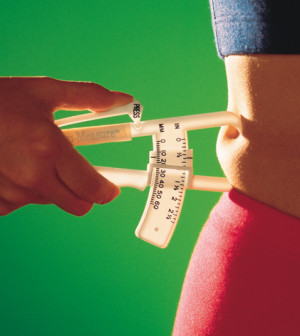- Could Your Grocery Store Meat Be Causing Recurring UTIs?
- Are You Making This Expensive Thermostat Error This Winter?
- Recognizing the Signs of Hypothyroidism
- 10 Strategies to Overcome Insomnia
- Could Artificial Sweeteners Be Aging the Brain Faster?
- Techniques for Soothing Your Nervous System
- Does the Water in Your House Smell Funny? Here’s Why
- Can a Daily Dose of Apple Cider Vinegar Actually Aid Weight Loss?
- 6 Health Beverages That Can Actually Spike Your Blood Sugar
- Treatment Options for Social Anxiety Disorder
Gradual Decline in Soda’s Sugar Content Might Help Curb Obesity

Gradually reducing the amount of sugar in sweetened beverages could lead to major declines in obesity and diabetes, a new study suggests.
Researchers calculated what would happen in the United Kingdom with a 40 percent reduction in sugar content in sugar-sweetened drinks — including fruit juices — over five years, without replacement with artificial sweeteners.
Such a move could prevent 1 million cases of obesity, 500,000 cases of overweight, and about 300,000 cases of type 2 diabetes over two decades, the team at Queen Mary University of London concluded.
“The appreciation of sweetness can adapt to gradual changes in sugar intake, and it is unlikely that the proposed strategy will influence the consumers’ choice provided the gradual reduction is done over five years,” Graham MacGregor and colleagues wrote.
“These findings provide strong support for the implementation of the proposed strategy,” they added.
The impact would be greatest among teens, young adults and poorer families, according to the study published Jan. 7 in The Lancet Diabetes & Endocrinology.
Type 2 diabetes is most common among middle-aged and older people who are overweight or obese, but heavy children and teens are also susceptible, according to the U.S. National Institutes of Health.
The study provides important information for policy makers, Tim Lobstein, director of policy at the World Obesity Federation in London, wrote in an accompanying editorial.
“Policies can be developed that have the potential to quickly change behavior and begin to reduce the prevalence of obesity and related diseases,” Lobstein said. Other measures also need to be taken, he added, suggesting restrictions on kid-targeted ads for unhealthy foods and implementation of a soda tax.
In combination, such measures could have a much greater effect on sugar consumption than any individual measure, Lobstein noted.
More information
The U.S. Centers for Disease Control and Prevention has more about sugary drinks.
Source: HealthDay
Copyright © 2026 HealthDay. All rights reserved.










